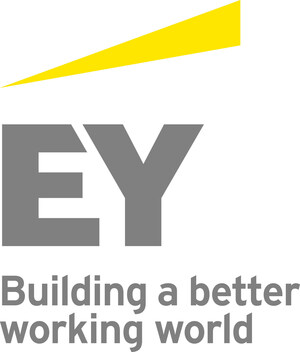- 67% of institutional investors surveyed say companies should undertake disruptive innovation projects
- 50% of CEOs indicate they are not well-prepared to take advantage of disruptive change and opportunity
- Just 27% of CEOs say corporate priorities are focused on generating new sources of revenue
LONDON, Dec. 12, 2017 /PRNewswire/ -- There is a significant gap between institutional investor expectations for disruption and how well prepared CEOs say their companies' are to seize the opportunity disruption presents, according to a new report from EY. The CEO imperative: in this Transformative Age, seize the upside of disruption or be disrupted report, which comes from the EY think-tank EYQ, finds that global organizations need to embrace the concept of duality in which they sustain the core business while also creating disruptive new business models.
The report finds 67% of institutional investors want companies to undertake potentially disruptive innovation projects even if they are risky and may not deliver short-term returns. Only 50% of CEOs indicate they are well prepared to take advantage of disruptive change and opportunity.
The research includes the survey findings of 101 global 5000 CEOs and 100 global institutional investors with at least US$1B in assets under management, and explores the dynamics of disruptive challenge and transformation. While CEOs and institutional investors agree that technology innovations is the number one source of disruption, when it comes to other sources of disruption opinions differ. New business models are the second biggest source of disruption for institutional investors, while for CEOs it is changing customer behaviors.
Mark Weinberger, EY Global Chairman and CEO, says:
"Innovation is a challenge that often becomes more difficult with success, as growing and larger companies find themselves faced with more short-term concerns. Boardroom and CEO strategies will determine the success of business, but historical quarterly earnings and financial reports still move stock prices. In today's accelerated digital economy, CEOs must strike the right balance by delivering on current business plans while strategically disrupting existing offerings in order to ignite the next phase of growth. Technology may be the cause of many challenges today — but if we approach it right, it's also the solution."
Deeper exploration into four key dimensions of disruption readiness for organizations highlights important gaps:
- Empowering leadership: Only 54% of CEOs report being the owner the company's disruption agenda
- Corporate culture: Just 43% of CEOs assign their companies a "good" or "very good" score for investing in exploratory, long-term ROI projects that may not deliver a short-term return
- Innovation practices and capabilities: Making internal risk capital available and developing autonomous innovation units represent the weakest areas in terms of activating innovation readiness, with only 39% and 31% of CEOs, respectively, assigning a good or better rating
- External sensing and collaboration: Only 33% gave their companies a good or better rating for investing in start-ups to gain a view of new technologies and business models
Uschi Schreiber, EY Global Vice Chair – Markets and Chair of Global Accounts Committee, says:
"Our world is in transition from a model of business we are familiar with to one that is in many instances still undefined. The pace of change is unprecedented. Too many CEOs and boards are still focused on only one thing: short term efficiency and productivity improvements. But what's needed is also a focus on the medium term and on building the future. This requires not just the use of up-to-date technology, it also means investing in innovation and being prepared to take some risks. Thinking and operating in duality can help corporations to seize the upside of disruption by focusing on their current success and growth as well as building the foundations for growth in the future."
The report concludes with 10 recommended measures for activating corporate disruption readiness. The top three measures include instilling a sense of urgency to overcome inertia, owning the agenda as the CEO, and aligning the C-Suite and board of directors to a shared ambition on disruption.
To access the full report, please click here.
About EY
EY is a global leader in assurance, tax, transaction and advisory services. The insights and quality services we deliver help build trust and confidence in the capital markets and in economies the world over. We develop outstanding leaders who team to deliver on our promises to all of our stakeholders. In so doing, we play a critical role in building a better working world for our people, for our clients and for our communities.
EY refers to the global organization, and may refer to one or more, of the member firms of Ernst & Young Global Limited, each of which is a separate legal entity. Ernst & Young Global Limited, a UK company limited by guarantee, does not provide services to clients. For more information about our organization, please visit ey.com.
This news release has been issued by EYGM Limited, a member of the global EY organization that also does not provide any services to clients.
Lizette Kodama
EY Global Media Relations
+1 212 773 7472
lizette.kodama@ey.com
Logo - https://mma.prnewswire.com/media/381362/EY_Logo.jpg




Share this article